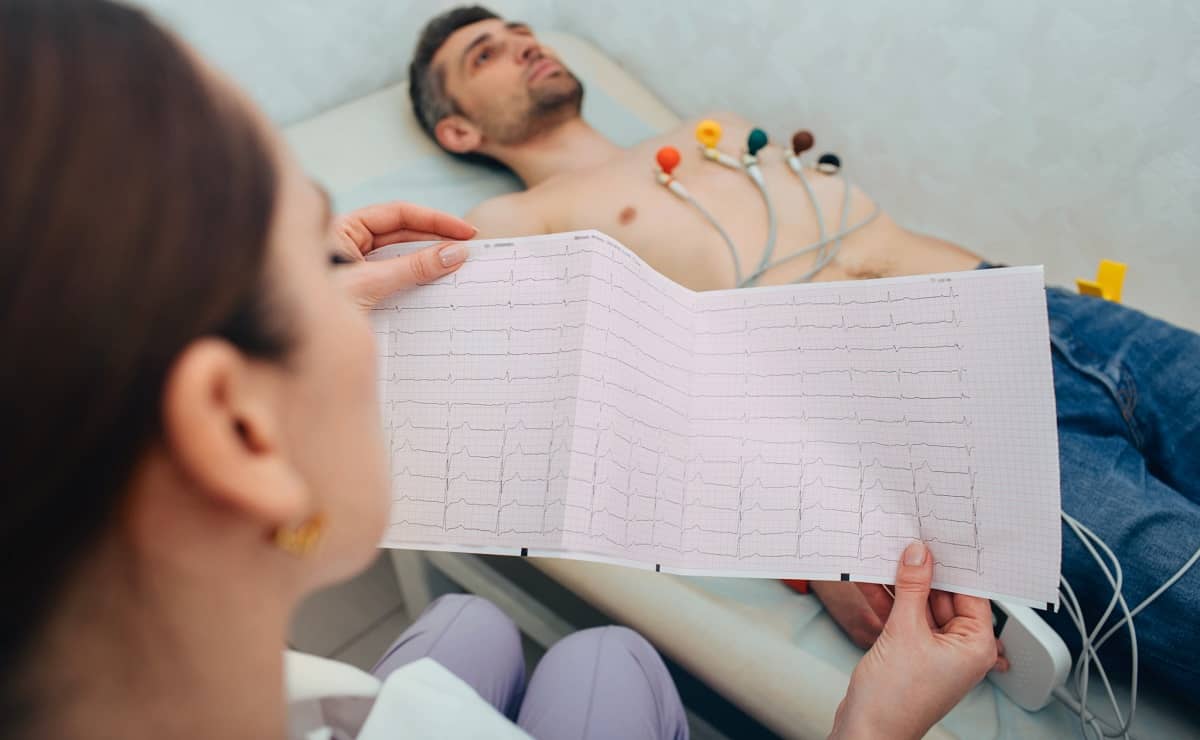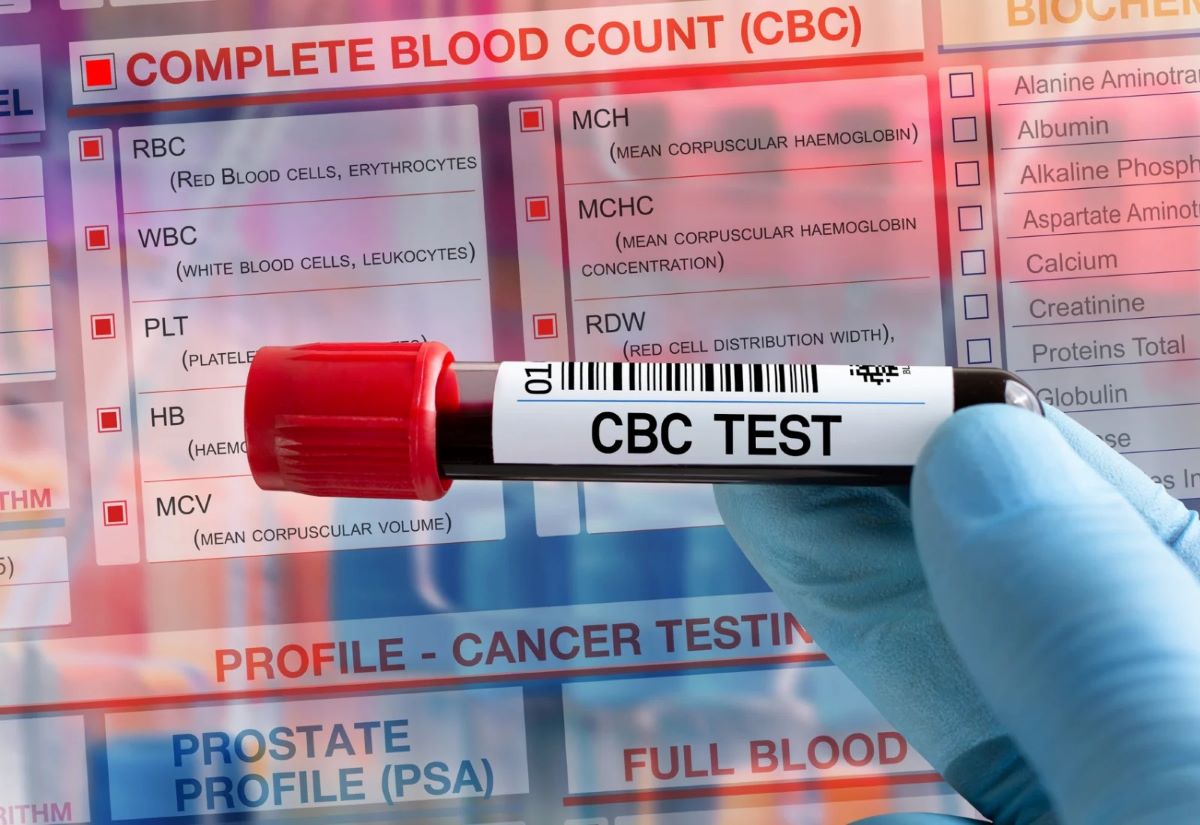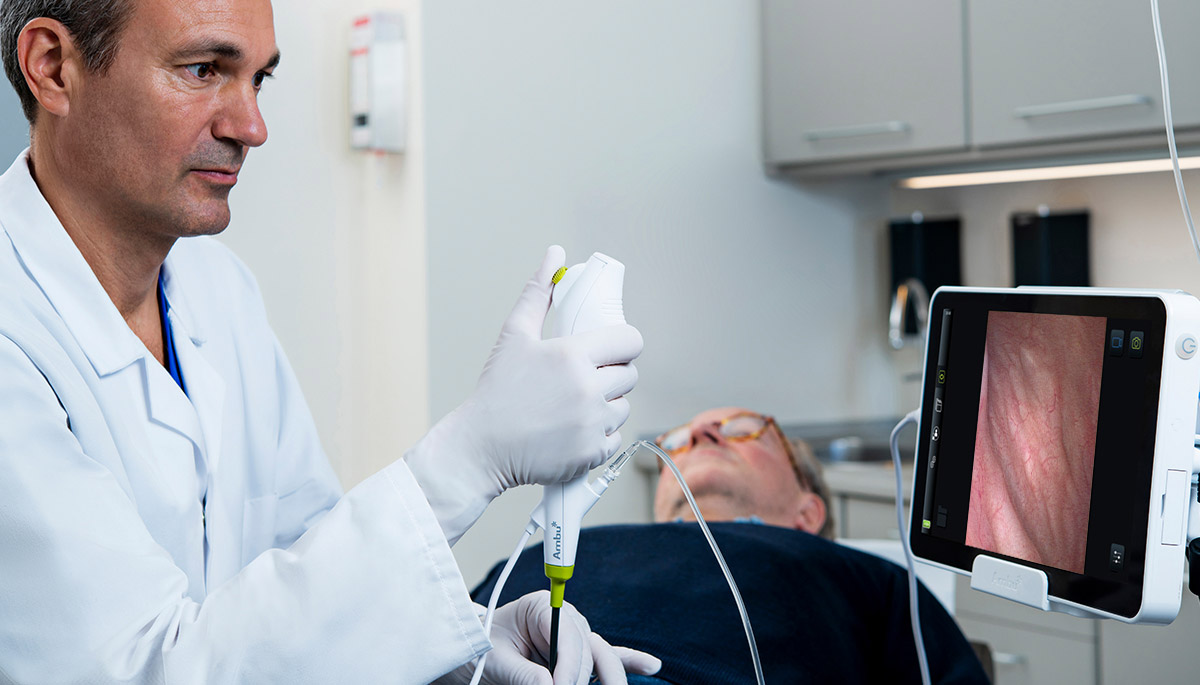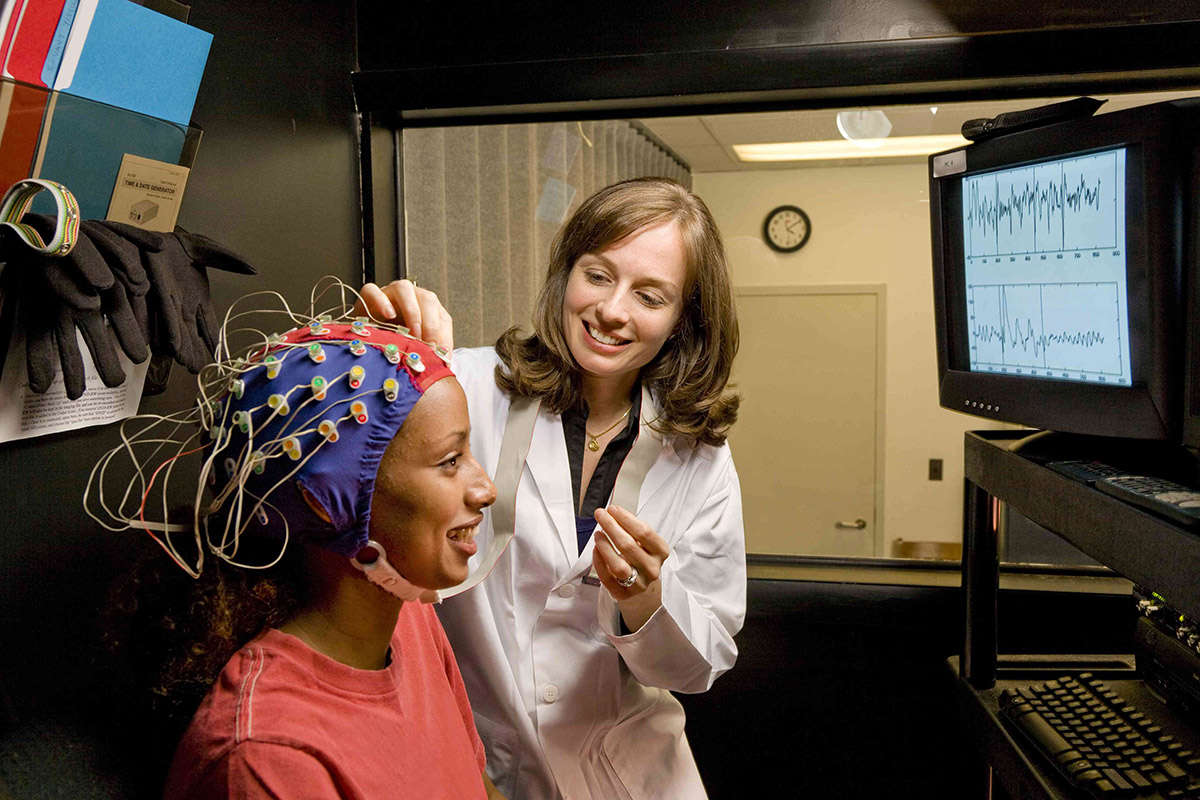

Finance
How Much Does An EKG Cost Without Insurance?
Modified: February 21, 2024
Find out the cost of an EKG without insurance and plan your finances accordingly. Don't let lack of coverage hinder your health monitoring.
(Many of the links in this article redirect to a specific reviewed product. Your purchase of these products through affiliate links helps to generate commission for LiveWell, at no extra cost. Learn more)
Table of Contents
Introduction
When it comes to managing our health, medical procedures such as an Electrocardiogram (EKG) can be a vital tool in diagnosing and monitoring various heart conditions. However, for individuals without health insurance, the cost of an EKG can be a significant concern. Understanding the factors that influence the cost of an EKG without insurance and exploring alternatives to reduce these costs is essential for those seeking affordable healthcare options.
An EKG is a noninvasive test that measures the electrical activity of the heart. By recording the electrical signals produced during each heartbeat, it can provide valuable information about the heart’s health, functioning, and rhythm. This test is commonly used to diagnose conditions like arrhythmias, heart attacks, and heart failure. Additionally, it can help assess the effectiveness of medications or treatments and monitor the progress of heart disease.
The cost of an EKG without insurance can vary depending on several factors, including the location, type of healthcare provider, and the complexity of the procedure. In general, hospitals and specialized clinics tend to have higher costs compared to independent diagnostic testing facilities or outpatient centers. The complexity of the EKG can also contribute to the overall price, with additional tests or interpretations potentially increasing the cost.
On average, a basic EKG without insurance can range between $50 and $300. However, it’s important to note that this is only an estimate, and the actual cost may be higher in some cases. Other factors like geographical location and local market rates can influence the price as well. Therefore, it’s advisable to contact healthcare providers directly to obtain accurate pricing information.
Despite the potential financial burden associated with an EKG without insurance, there are ways to reduce the cost and explore affordable alternatives. Some healthcare providers may offer discounted rates for self-pay patients or provide payment plans to make it more manageable. Additionally, there are free or low-cost clinics that provide EKG services for individuals in need of financial assistance.
In this article, we will delve deeper into the factors affecting the cost of an EKG without insurance, provide an overview of the average cost, and explore various ways to reduce these costs. We will also discuss free or low-cost options available for individuals who are unable to afford traditional healthcare services. By understanding these options, you can make informed decisions about your healthcare and take steps towards obtaining the necessary medical care while minimizing financial strain.
Overview of an EKG
An Electrocardiogram, commonly known as an EKG or ECG, is a diagnostic test that measures the electrical activity of the heart. It is a noninvasive procedure that helps healthcare professionals evaluate the heart’s health, detect abnormalities, and diagnose potential heart conditions.
During an EKG, electrodes or small, sticky patches are placed on specific locations on the skin, typically on the chest, arms, and legs. These electrodes detect and record the electrical signals produced by each heartbeat. The electrical activity is then displayed on a graph, allowing healthcare professionals to interpret the heart’s rhythm and identify any irregularities or abnormalities.
The EKG graph, commonly referred to as an electrocardiogram, shows distinct waves that represent different phases of the cardiac cycle. The main components of the EKG graph are:
- P waves: These represent the electrical impulse that stimulates the contraction of the atria (the upper chambers of the heart). The P wave is followed by a brief pause as the impulse travels through the atrioventricular (AV) node.
- QRS complex: This complex represents the electrical impulse that spreads through the ventricles (the lower chambers of the heart), causing them to contract and pump blood. The QRS complex is typically the largest wave on the EKG graph.
- T waves: These represent the repolarization or recovery of the ventricles after contraction.
By analyzing the different components of the EKG graph, healthcare professionals can identify various heart conditions and abnormalities. These include:
- Arrhythmias: Irregular heart rhythms, such as atrial fibrillation (AFib), bradycardia (slow heart rate), or tachycardia (fast heart rate).
- Heart attacks: This is indicated by specific patterns on the EKG graph, such as ST segment elevation or Q waves.
- Heart enlargement: Also known as cardiomyopathy, this condition is characterized by an enlarged heart, which can be detected through changes in the EKG patterns.
- Drug effects: Some medications can affect the electrical activity of the heart, which can be observed on the EKG.
An EKG is a valuable tool in diagnosing and monitoring various heart conditions. It is often performed as a routine test during check-ups, pre-surgical evaluations, or when a patient presents with symptoms suggesting a heart-related issue.
Having a basic understanding of what an EKG entails can help individuals without insurance make informed decisions about their healthcare. By understanding the purpose and process of the test, patients can better communicate with healthcare providers and explore available options to manage the cost of an EKG without insurance.
Factors Affecting the Cost
The cost of an EKG without insurance can vary depending on several factors. Understanding these factors can help individuals anticipate and manage the expenses associated with the procedure. Here are some key factors that influence the cost:
- Healthcare Provider Type: The type of healthcare provider you choose can significantly impact the cost of an EKG. Hospitals and specialized clinics tend to have higher fees compared to independent diagnostic testing facilities or outpatient centers. The overhead costs of running a hospital or clinic often contribute to the higher prices.
- Complexity of the Procedure: The complexity of an EKG can influence its cost. In some cases, additional tests or interpretations may be required, leading to higher charges. For example, a standard EKG typically records the heart’s electrical activity at rest, while a stress EKG monitors the heart’s response during physical exertion. The additional resources and expertise needed for these specialized tests may result in higher costs.
- Geographical Location: The cost of an EKG can vary depending on the region or country. In areas with a higher cost of living or where healthcare expenses are generally higher, EKG procedures are likely to be more expensive. It’s important to research and compare prices in your specific location to get an accurate understanding of the cost.
- Additional Services: Some healthcare providers may bundle additional services or tests with the EKG, which can impact the overall cost. For example, if the EKG results indicate the need for further cardiac imaging tests, such as an echocardiogram or a cardiac stress test, the total expenses will be higher.
- Self-Pay Discounts: While not a direct factor in determining the cost of an EKG, many healthcare providers offer discounted rates for self-pay patients. If you don’t have insurance, it’s worthwhile to inquire about these discounts and negotiate the price upfront.
It’s important to keep in mind that the cost of an EKG without insurance is typically higher than what insurance companies negotiate with healthcare providers. Insurance companies have the advantage of negotiating discounted rates for their members. Therefore, without insurance, individuals may need to pay the full retail price for the EKG procedure.
By understanding the factors that affect the cost of an EKG, individuals can make more informed decisions regarding their healthcare. Comparing prices, exploring different healthcare provider options, and discussing payment options and self-pay discounts can help individuals navigate the financial aspect of obtaining an EKG without insurance.
Average Cost of an EKG Without Insurance
The cost of an EKG without insurance can vary depending on several factors, including the location, healthcare provider type, and the complexity of the procedure. While it is challenging to provide an exact figure, we can provide an average range based on available data and industry estimates.
On average, a basic EKG without insurance can range between $50 and $300. However, it’s important to note that this is only an estimate, and the actual cost may be higher in some cases. The geographical location and local market rates can influence the price as well. In areas with higher healthcare costs, it is not uncommon for the price to exceed the upper end of the range.
The cost of an EKG may also increase if additional tests or interpretations are required. For example, a stress EKG, which monitors the heart’s response during physical exertion, may cost more than a standard resting EKG. Similarly, if the initial EKG indicates the need for further evaluation, such as an echocardiogram or a cardiac stress test, the overall expenses will be higher.
Hospitals and specialized clinics generally have higher fees than independent diagnostic testing facilities or outpatient centers. The overhead costs associated with running a hospital or clinic often contribute to the higher prices. It’s important to contact healthcare providers directly to obtain accurate pricing information for your specific situation.
Additionally, it’s worth mentioning that the cost of an EKG without insurance is typically higher than the negotiated rates insurance companies have with healthcare providers. Insurance companies are able to negotiate lower prices on behalf of their members, reducing their out-of-pocket expenses. Without insurance, individuals often need to pay the full retail price for the EKG procedure.
Understanding the average cost of an EKG without insurance allows individuals to plan and budget accordingly. It’s crucial to research and compare prices from different healthcare providers in your area, inquire about self-pay discounts, and discuss payment options or installment plans. Many healthcare providers are willing to work with patients to find a solution that fits their financial situation.
It’s important to remember that prices can vary significantly, and the most accurate way to determine the cost of an EKG without insurance is to directly contact healthcare providers and gather pricing information specific to your needs.
Ways to Reduce the Cost of an EKG Without Insurance
For individuals without insurance, the cost of an EKG can pose a financial challenge. However, there are several strategies you can employ to reduce the overall cost and make it more affordable. Here are some ways to consider:
- Shop around: Research and compare prices from different healthcare providers in your area. Contact hospitals, clinics, independent diagnostic testing facilities, and outpatient centers to inquire about their EKG pricing. By exploring multiple options, you can identify providers with more competitive rates.
- Inquire about self-pay discounts: Some healthcare providers offer discounted rates for self-pay patients. Ask the provider if they have any special pricing available for individuals without insurance. Additionally, you can ask if they have any discounted package deals that include various tests or services bundled together.
- Negotiate the price: Don’t be afraid to negotiate the price with healthcare providers. Explain your financial situation and inquire if they are willing to lower the cost. They may be open to negotiating a more affordable rate, especially if you are paying out-of-pocket.
- Consider outpatient centers and independent clinics: Independent diagnostic testing facilities and outpatient centers often have lower overhead costs compared to hospitals and specialized clinics. As a result, they may offer more affordable options for an EKG without compromising the quality of care.
- Research free or low-cost clinics: Some communities have free or low-cost clinics that provide healthcare services to individuals who are uninsured or underinsured. These clinics may offer EKGs at reduced or no charge based on income eligibility. Research local clinics in your area and inquire about their services and pricing options.
- Seek financial assistance: In certain cases, financial assistance programs or foundations may provide support for individuals in need of medical care. These programs can help cover the cost of an EKG or connect you with resources that offer financial aid for medical procedures. Reach out to local organizations or charities that offer healthcare assistance to see if you qualify.
Reducing the cost of an EKG without insurance requires proactive research, communication, and advocating for yourself. By exploring different options, inquiring about discounts, negotiating the price, and seeking out assistance programs, you can significantly lower the financial burden associated with this medical procedure.
Remember, it’s important not to compromise on the quality of care when seeking cost-effective options. Ensure that the healthcare provider you choose is reputable and can provide accurate and reliable EKG results. Prioritize your health while also being mindful of your financial situation.
Free or Low-Cost Options for EKGs Without Insurance
For individuals without insurance who are unable to afford the cost of an EKG, there are free or low-cost options available that can help you obtain the necessary medical care. These options may vary depending on your location and community resources, but here are some avenues to explore:
- Community Health Clinics: Many communities have community health clinics that offer a range of medical services, including EKGs, at reduced or no cost. These clinics are often funded through government grants or charitable organizations and are designed to provide healthcare to individuals who are uninsured or facing financial difficulties. Contact local community health clinics to inquire about their services and eligibility requirements.
- Low-Income Health Programs: Some states offer low-income health programs that provide comprehensive healthcare services to individuals who meet specific income requirements. These programs may include coverage for diagnostic tests like EKGs. Research the low-income health programs available in your state and find out if you qualify for assistance.
- University Hospitals and Medical Schools: University hospitals and medical schools often have teaching clinics where medical students and residents provide care under the supervision of experienced healthcare professionals. These clinics sometimes offer discounted or free services, including EKGs. Contact the nearest university hospital or medical school in your area to inquire about their healthcare services and whether they provide reduced-cost EKGs.
- Charitable Organizations: There are charitable organizations and foundations dedicated to providing healthcare services to individuals in need. These organizations often have programs that cover the cost of diagnostic tests for those who cannot afford them. Research local charities or organizations that focus on healthcare access and inquire about their assistance programs.
- Government-Assisted Programs: Depending on your eligibility, you may qualify for government-assisted programs that provide healthcare coverage. Programs such as Medicare, Medicaid, or Children’s Health Insurance Program (CHIP) may offer coverage for diagnostic tests like EKGs. Research the government assistance programs available in your area and determine if you meet the eligibility criteria.
It’s crucial to actively research and contact these resources to explore the options available in your area. Understand the eligibility criteria and any documentation required to access these free or low-cost services. Additionally, be prepared for potential wait times or limited availability as these services may have high demand.
While free or low-cost options can help individuals without insurance access the necessary medical care, it’s essential to keep in mind that these options may have specific limitations or requirements. It’s recommended to discuss your situation with healthcare providers and explore all available avenues to ensure you receive the care you need.
Remember, prioritizing your health is crucial, and seeking out free or low-cost options is a valuable step in obtaining the necessary medical care, including an EKG, without putting a strain on your finances.
Conclusion
The cost of an Electrocardiogram (EKG) without insurance can be a significant concern for individuals seeking medical care. However, by understanding the factors that influence the cost and exploring various strategies, it is possible to reduce the financial burden associated with this diagnostic test.
An EKG is a noninvasive procedure that measures the electrical activity of the heart. It provides valuable information about the heart’s health, functioning, and rhythm, helping healthcare professionals diagnose and monitor various heart conditions. However, the cost of an EKG without insurance can vary depending on factors such as the location, healthcare provider type, complexity of the procedure, and additional services required.
To manage the cost, individuals can take several steps. Shopping around and comparing prices from different providers, inquiring about self-pay discounts, and negotiating the price can help reduce expenses. Considering outpatient centers and independent clinics that often have lower costs is another option to explore.
For those unable to afford the cost of an EKG, there are free or low-cost options available. Researching community health clinics, low-income health programs, university hospitals, charitable organizations, and government-assisted programs can help individuals access the necessary medical care without incurring high expenses.
It’s crucial to prioritize health while being mindful of financial considerations. By taking proactive steps, individuals can find affordable solutions and obtain the vital EKG testing they need without insurance coverage. It’s important to contact healthcare providers directly, inquire about available financial assistance programs, and explore all viable options in your community.
Remember, the cost of an EKG without insurance can vary, and it’s essential to gather accurate pricing information specific to your circumstances. By being informed and proactive, individuals can navigate the financial aspect of healthcare and ensure access to necessary diagnostic tests and medical care.
Ultimately, everyone deserves access to quality healthcare, and by understanding the cost factors and exploring cost-reduction strategies, individuals without insurance can seek the necessary medical care and prioritize their heart health.














